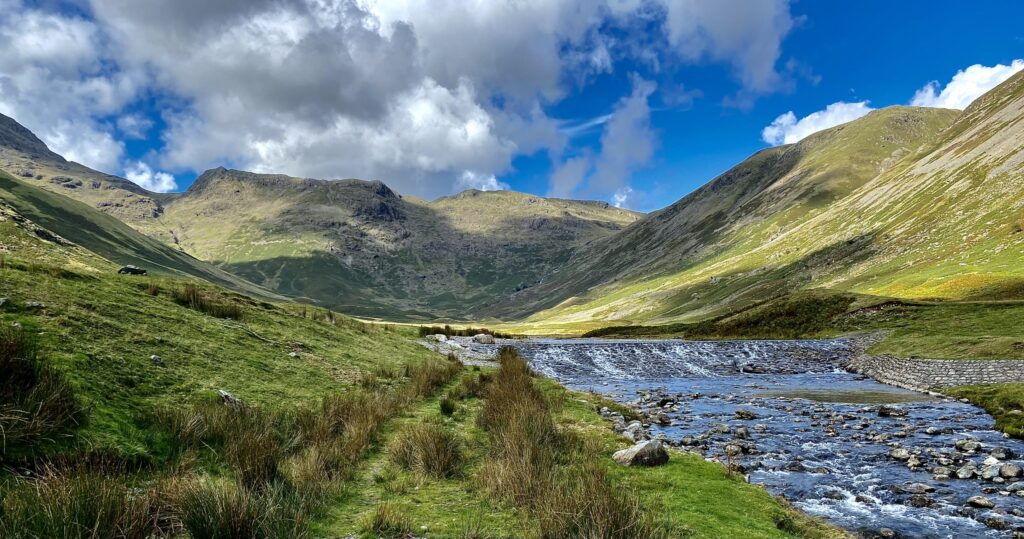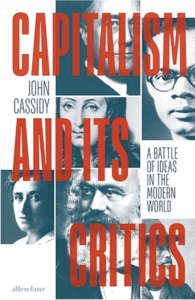End of the Valley

Langdale on a beautiful day.
Quote of the Day
“For Trump, everything is a shakedown, the way it was for Vito Genovese, who is Trump’s model of governance. Every crisis, foreign or domestic, is assessed for its financial opportunity, and crises are manufactured for this purpose. He doesn’t have a worldview but a cognitive handicap, the incurable myopia of infinite self-interest. Money is his country; and more money is his diplomacy, a kind of one-man imperialism. (America will withdraw from the world, but not from the world’s money.) The sole objective that comes even close to money is revenge, which is the only thing that Trump will pursue even without the prospect of remuneration.”
- Leon Wieseltier via Tina Brown’s splendid blog
Musical alternative to the morning’s radio news
Handel | As steals the morn (L’Allegro, HWV 55) | Amanda Forsythe & Thomas Cooley, Voices of Music 4K
Long Read of the Day
The Permanent Stain
When Trump took office in January my first thought was to look out two texts which seemed potentially relevant. One was the obvious choice — Edmund Burke’s “Reflections on the Revolution in France”, published in November 1790. The other was Ralf Dahrendorf’s thoughtful little book, Reflections on the Revolutions in Europe, published in 1990, in which he pondered the various post-1989 ‘colour’ revolutions in Eastern Europe and wondered how many of those liberated states had a chance of evolving as functional democracies. Both were interesting reads, but of no use in interpreting what was happening in Washington.
The big question, as I saw it in those early weeks of the new regime, was whether we were witnessing a revolution or a coup. The catapulting of Elon Musk into the heart of the administration initially suggested the latter, and so for a brief period it seemed to be. But Musk imploded, as he is wont to do, and Americans are left with something much more worrying: that they have a full-blown revolution on their hands.
The strangest thing is that it’s all happening in full view. The most discriminating effort at monitoring what’s been going on is Christina Pagel’s heroic attention to detail as expressed in her ’Trump Action Tracker’ website. But for a literary assessment of what’s happening, the most eloquent I’ve come across to date is this essay by Andrew Sullivan, published on his blog the other day.
It’s long but (IMHO) worth it. Here’s a sample:
This very Greek tragedy — conservatives killing the Constitution they love because they hate the left more — is made more poignant by Trump’s utter cluelessness: he doesn’t even intend to end the American experiment in self-government and individual freedom. He isn’t that sophisticated. He is ending it simply because he knows no other way of being a human being. He cannot tolerate any system where he does not have total control. Character counts, as conservatives once insisted, and a man with Trump’s psyche, when combined with his demagogic genius, is quite simply incompatible with liberal democratic society. Unfit.
The inescapable implication of all this is that Trump will turn out to be the most impactful American president since FDR, and not in a good way.
America’s plan to use AI as a political weapon
Yesterday’s Observer column…
Software engineer turned venture capitalist Marc Andreessen, one of Silicon Valley’s really big shots (and loudest mouths), was given the bum’s rush when he went to Washington. This convinced him, he said afterwards to Ross Douhat, that the tech industry was “no longer dealing with rational people. We’re no longer dealing with people we can deal with. And that’s the day we walked out and stood in the parking lot of the West Wing and took one look at each other, and we’re like: ‘Yep, we’re for Trump.’”
Which explains how all the big tech moguls wound up with front row seats at Donald Trump’s inauguration in January. Sidling up to Trump, though, was also shrewd because it meant that, suddenly, there was a chance that their corporate interests might become inextricably intertwined with those of the US government, to their mutual benefit.
That it was a good bet – for the industry, anyway – was amply confirmed last week when “America’s AI action plan” appeared…
So many books, so little time

Frederic Jameson famously observed that “it is easier to imagine the end of the world than to imagine the end of capitalism.” Which is why this new book by the New Yorker writer John Cassidy looks interesting.
The blurb says that Cassidy
tells the story through the eyes of the system’s critics. From eighteenth-century weavers who rebelled against early factory automation to Eric Williams’s paradigm-changing work on slavery and capitalism, to the Latin American dependistas, the international Wages for Housework campaign of the 1970s, and the modern degrowth movement…
Martin Wolf reviewed it pretty favourably in the FT at the weekend, agreeing with the book’s overall conclusion that its extraordinary adaptability is what has enabled capitalism to survive its perennial crises. Its “permanent revolution” is likely to continue because no compelling alternative has yet emerged. Sadly, Jameson was right.
I’ve just bought a copy. More when I’ve read it.
This Blog is also available as an email three days a week. If you think that might suit you better, why not subscribe? One email on Mondays, Wednesdays and Fridays delivered to your inbox at 5am UK time. It’s free, and you can always unsubscribe if you conclude your inbox is full enough already!
